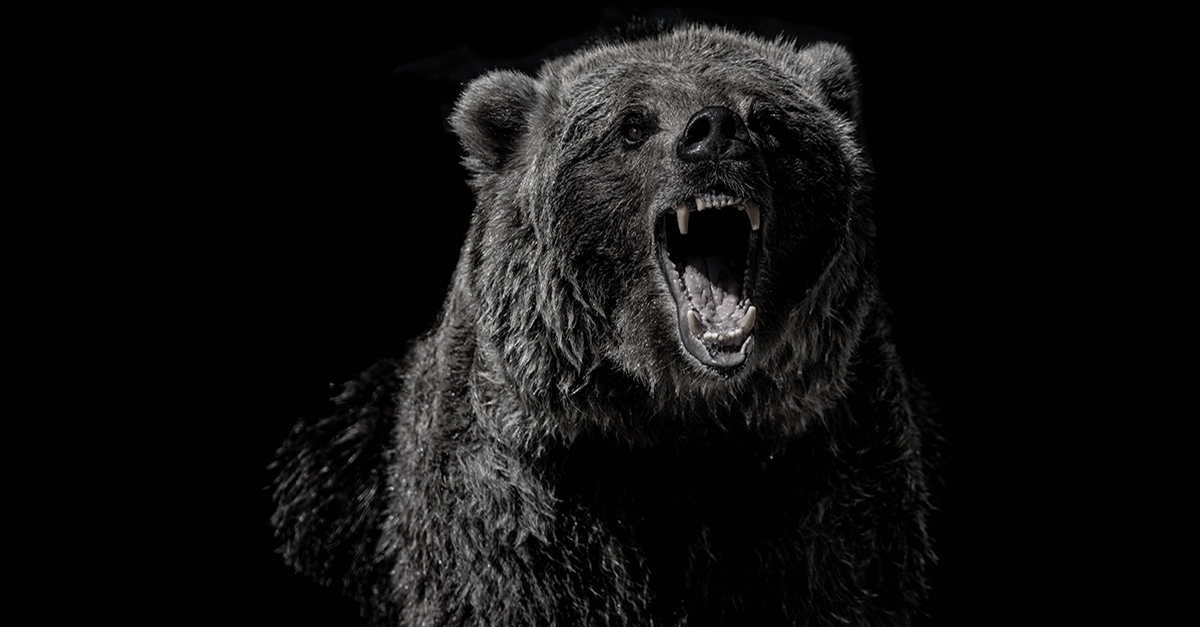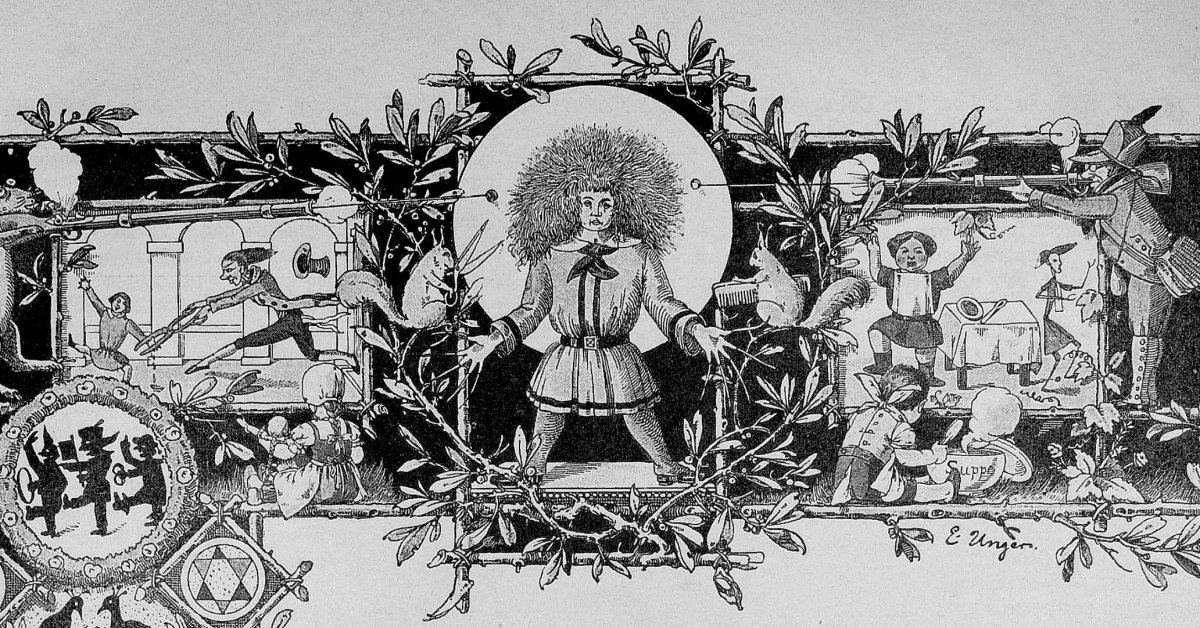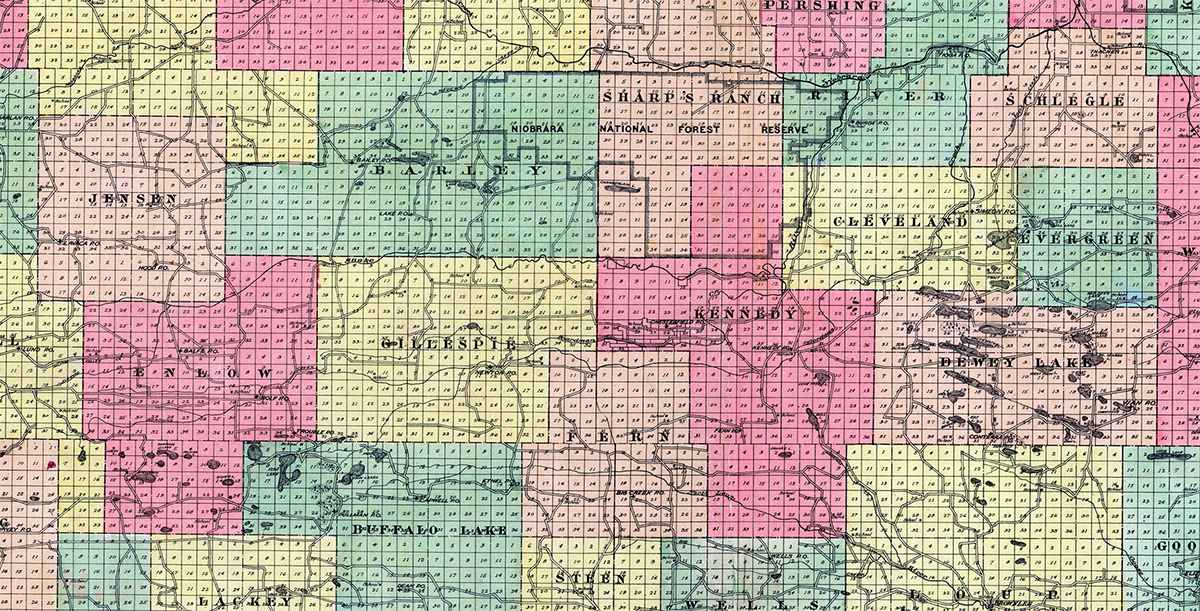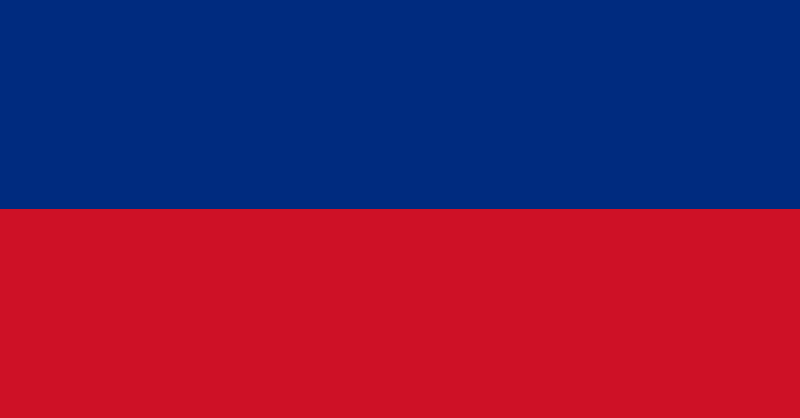If you have any North Korean friends named Ju-ae, I have awful news for you. That can’t be shocking; you have friends in North Korea. Bad news radiates from the hermit kingdom like coronavirus from every country except North Korea. This bad news, though, is particularly, especially bad: Ju-ae has to change her name. Or his. Or theirs. I don’t know a lot about the gender connotations of the name Ju-ae. I’d never heard it before. And starting now, I’m going to hear it a lot less, because North Korean Supreme Leader Kim Jong-Un, winner (and only legal candidate) of People’s Republic magazine’s “World’s Cuddliest Autocrat” award ten years running, is banning it. His daughter (and, by some accounts, heir apparent) is named Ju-ae, and soon, she’ll be the only one. Just as North Korean men aren’t allowed to experience the syncretic wonder of the capitalist-business-in-the-front, communist-party-in-the-back mullet, North Koreans in general won’t be permitted to share his flair for baby names.
I know what you’re thinking: what does this mean for Ju-ae? Not your hypothetical friend, the one whose identity is being torn from her, but the remaining Ju-ae, the one who will one day be cast in 72 feet of bronze at Pyongyang’s Mansu Hill. What does this mean for her?
We can debate the value of a unique name. In some circles, being “Beyonce” instead of “Claire” feels like a definite leg-up. You’ve heard of “Bono”, even if you’re never listened to U2. But would you recognize his legal name, Jason Ian O’Malley? Does that ring a bell? If you answered “yes”, your prize is outing yourself as a fucking liar; Bono’s real name is Paul David Hewson. Anyway, if standout mononyms were detrimental, why didn’t anyone tell The Artist Formerly Known As Prince “The Love Symbol” Rogers Nelson that he could have saved himself the trouble by going by “Mike Davis”?
Beyond the star-studded box we prefer to imagine ourselves inside, though, oft-cited research suggests that unconventional names are more likely to hurt children than help them. Of course, the conclusion of many of these studies is less that unique names make potential employers think you’re weird and more that they subtly hint that you might be Black.
But Ju-ae doesn’t have to worry about that. Barring perennial whispers of a military coup, her future is ironclad enough that she probably won’t ever have to Google “resume maker free”, and the fame and fortune of a Beyonce is the birthright of a girl whose grandfather was once the world’s largest singular consumer of Hennessy.
But any American billionaire can afford to shell out $800,000 for cognac. Granddaddy Kim Jong-il had other fine tastes, of course, like demanding that each and every grain of rice served to him be of the same uniform shape and size. Extravagant? Sure, but if Snoop Dogg can afford to employ a full-time blunt roller, he’d have no trouble finding a dedicated Doggystyle fan with a ruler and an Adderall hookup.
Those are simple luxuries, fine for the previous generation of despots, but today’s class of obligate parasites comes with a more refined palate. What do you get the family who has everything (including, but not limited to the world’s only communist hereditary monarchy)?
To answer this question (the specific predetermined way I want to answer it), we have to go back at least a few hundred years, to a time when Eastern rulers knew the value of a name. The place? A little ol’ country called China, North Korea’s neighbor and begrudging friend for the length of that one week in the middle of summer when everyone else is away at camp.
The ancient and pre-modern Chinese used the word bihui to refer to their system of name-related taboos. Culturally, it was (and, at least in some cases, still is) considered disrespectful for anyone but a social superior to use a person’s given name (rather than a family name or honorific) in conversation. For normal folks, this created a cascading system of name habits by which people would call their children and lessers by their given names but lords, nobles, and elders by titles. This worked well enough until speakers followed that line all the way to the top where the Emperor, placed there by God, had no earthly superiors with whom to commune. As such, there would be no need for anyone to use his given name once he’d been crowned.
If you’re imagining the Emperor’s name would simply fall into disuse, you’re not giving the Chinese social and political system enough credit. It wasn’t merely improper to use the given name of a superior; the gesture’s acceptability ranged from very rude in better times to very illegal in worse. Use of the emperor’s own given name wasn’t a minor faux pas, but capital disrespect.
So if you’re a commoner in imperial China, even whispering the emperor’s name can get you into trouble. The word’s a no-no, a taboo. But following taboos can be hard; in English, the same word can, in different contexts, be either offensive or completely normal. Calling someone an “ass” is rude. Calling a donkey an “ass” is totally accurate, if outdated (and thus a little rude). Telling someone they’re a “bitch” is very rude, but levying the same claim against a female dog? Any third grader who’s cracked the code to parent-sanctioned swearing will tell you it’s kosher.
In old China, the context wouldn’t matter. Whether you’re challenging the emperor to fisticuffs or writing a song about how pretty he is, you can’t use his name. That’s that. And yet, the power of the ban is made even more potent by a quirk of the Chinese writing system. Where languages like English are written with alphabets composed of phonemic letters used to (poorly) build words, Chinese languages are written with syllabic glyphs, pictorial characters that represent entire syllables instead of smaller sounds. Western names can be made up of as many letters as the Swedish government will let you get away with, but Chinese names tend to be shorter, using only a few symbols. To ensure no one even comes close to disrespecting the Emperor, the government systematically banned the use, not only of the specific sequence of symbols that make up the Emperor’s given name, but of all of the individual symbols independently..
In other words, if the new Emperor’s childhood name was “Golden Luck” and you operate “Lucky Joe’s Cash 4 Gold Pawn Palace”, you’re fucked. You, like every Ju-ae in Pyongyang, have to pick a new name.
“Alright”, you might be thinking, “I’ll eat the cost of having a new sign made. It’s not perfect, but I trade in gold, so business is good. Everything else should be business as usual.”
But you’d be wrong. Because “gold” is a banned word, you can’t say it anymore either. You can euphemize it by replacing it with something like “yellow metal”, or you can fill its place with a rhyme like “mold” or “bold”, but you sure as shit can’t say “gold”. Business for you is fundamentally changing. Why? So we can be absolutely sure that someone doesn’t even accidentally take the Emperor’s name in vain.
The process of remaking language in a new emperor’s image could be incredibly time-consuming and expensive. If an emperor’s name was more common, or even if it simply involved more common characters, the process would be even more expensive. People would work for years and hemorrhage money to erase the Emperor’s name from public display in what historians have labeled a “reverse T. Denny Sanford”.
Occasionally, the line of malevolent psychos with foot-bound concubines was broken up by a kind-hearted man of the people like Emperor Xuan, who ruled in the mid-first century BCE. Xuan (not his given name) was born a prince but raised a commoner after his grandfather was framed for witchcraft and killed himself. With his humbling upbringing behind him, Xuan understood the lives of the common people better than his predecessors, and knew well how much of a fucking headache it was to have to change the name of every Cash 4 Gold place from Chang’an to Luoyang. So, before he formally took the throne, Xuan changed his given name from “Bingyi”, which was made up of two common characters, to the comparatively rarer “Xun”. After his coronation, it was the uncommon new name, Xun, that took the bullet instead of both “Bing” and “yi”.
Xuan was considered a great and seminal ruler by contemporaries and historians alike. He cared enough about his people to spare them the annoyance of removing each and every “Bing” and “Yi” from their vocabularies. But in the end, he couldn’t stop them from needing to ban something. The cultural importance of the name taboo was too potent.
For us, it might sound silly, being so afraid of using a name. Indeed, this case is a little beyond our cultural lexicon—uttering the Emperor’s name aloud, even with benevolent intentions, could result in pretty extreme punishment. But even without such risks, Chinese culture can be pretty superstitious and taboos can be plentiful.
Risk-averse Chinese people may, for example, avoid the number “four”, because its pronunciation in Mandarin (and other dialects) is similar to the pronunciation of the Chinese word for “death”. Sometimes, this taboo manifests more simply, causing those in its thrall to merely avoid using the word itself. Other times, its manifestation is more general, leading people to avoid using four-syllable words or to omit the fourth floor in buildings. Similarly, when the Chinese Lunar New Year comes around, many Chinese families use the occasion as an opportunity to exchange gifts. What you give is open ended, but there are several gifts you don’t want to receive, including shoes (the mandarin word for these sounds too close to the word “evil”).
Again, from the outside looking in, these taboos might seem silly or archaic, but when we apply a fairer lens, Chinese tetraphobia’s modern manifestation isn’t that different from western triskaidekaphobia (right down to the skipped floors in tall buildings), and avoiding shoes as gifts isn’t really more bizarre than not being allowed to wear white at a wedding (or, even worse, after Labor Day).
But even after making these concessions, I can’t blame you for remaining unconvinced. We shy away from words or associations, but it’s not because we’re afraid of evil spirits, right? That’s Chinese history, not ours.
Let’s talk about bears.
In English, we call the big, fuzzy forest-dwellers that sleep all winter “bears”. In German, a language that’s relatively closely-related to English, they’re known as “Bären”. English and German are both Indo-European languages, members of by far the thickest branch on the tree of human linguistic history. Swedish is another member of this branch. Swedes call bears “björnar”. So far so similar, but speakers of other related languages differ more significantly; the Lithuanian word for bear is “lokys”. The Russian word is “Медвед” (or “myedvyed”). Further South, the Spanish and Greek words for “bear” are different still.
It’s worth noting that differentiation like this isn’t uncommon even for related languages. French and Italian are close kin, but they’re still different enough that speakers of one language would require years of learning to speak the other fluently. Even more closely related languages like Norwegian and Swedish come with their own glitches and deviations. What makes these deviations, the ways speakers of European languages say “bear”, so interesting is that we can track them down to disparate origins and then follow those back to where they diverge to begin with. I promise this path is worth following.
For this part of the piece, it’s important to acknowledge that a lot of what’s to come is semi-scientific conjecture. We don’t know what words ancient humans used because we weren’t there. But people smarter than me have made guesses smarter than mine. One of these guesses is that the English, German, and Swedish words for “bear” all derive from “brown” or “brown one”. This is more easily visible in the Swedish “björn”, but is also a little more obvious in the alternative English name “bruin”, still commonly used by sports teams, groups otherwise totally immune from the curse of going all-in on time-sensitive names.
The Russian “myedvyed” means (or meant) “honey eater”, with that first syllable (“myed”) sharing the same root that brought us “mead”. Lithuanian “lokys” probably either means “shaggy”, referring to the bear’s fur, or “one who licks”, referring to the bear’s timeless reputation as the freak of the forest.
So not only do these words all come from different places, they’re all describing different aspects of bears, from fur color or consistency to dietary habits. At first glance, these names might seem unimportant, but when we investigate a little further, things get a little more interesting. Each of these words, like the “yellow metal” chicanery we utilized above to keep our Cash 4 Gold scheme for going under, is a euphemism, a filler word we use in place of a more negatively-valenced word.
Today, English, Russian, and Lithuanian speakers all have very different words for the same animal. But linguists don’t think this was always the case. A long time ago, the words our ancestors used would have been a lot more similar and more clearly tied to a common origin. It wasn’t our tongues that drove our pronunciations apart, but our minds. We were afraid to say “bear”.
We don’t know why ancient Europeans were scared of incurring the name of these massive carnivores. Suggestions vary from the belief that uttering the name of an animal could summon it to a more reverential attitude associated with hunters who would sooner cosplay bears than make enemies of them. Whatever the force, it was powerful enough to drive a number of adjacent wedges between the natural deviations of Indo-European languages. In any case, we stopped saying “bear”.
In researching for this piece, I stumbled often upon the same allegation: that, because of the bear taboo’s obfuscating aura, we have no idea what the original Proto-Indo-European (the language that started it all) word for bear would have been. Of course, as XKCD and Gretchen McCullough can tell you, that’s not true. We have a pretty decent idea of what the root word might have been. Our best guess? “*rkto-“.
The asterisk is linguist jargon to notify readers that this is a hypothetical reconstruction and not one directly evidenced in writing. So it’s a guess, but a well-educated one.
If you’re confused, I don’t blame you. How can we have any idea what our original word for “bear” would have been if the languages descended from that language all use euphemisms in place of it? It’s a good question. The answer? I’ve fooled you. You’ve been strategically misled. They don’t all use euphemisms. Not even close. Remember up above when I told you up front what the German, Swedish, Russian, and Lithuanian words for “bear” are before simply dropping that the Greek and Spanish words were “different”?
The Greek word for “bear” is “arktos”. It’s from the ancient Greek form of the word that we get “Arctic”, our name for the northernmost area of the earth taken from its association with Ursa Major, the band that launched the career of Polaris, also known as the North Star. It’s from this same association that the Earth’s southernmost continent takes its name, too. “Antarctica” is an abridged reading of “anti-Arctica”, which modern woke scientists will claim means “opposite Arctica”, but I’d argue it’s bald evidence that the pre-human supersociety that once lived there also hated bears.
Jumping west, the Spanish word, “oso”, comes from the Latin “ursus”, which is clearly closely related to the Greek form of the word and also lends itself to that constellation, Ursa Major (big bear). The Latin and Greek languages play an outsized role in the minds of historians, scientists, and alpha male neo-eugenecists, but they’re not the only languages that harbor evidence of a name northerners are more keen to forget. Armenians, the Indo-European holdouts of the Caucasus mountains, know these ursids as “arj”. Albanians, the Southeastern European equivalent of that kid in your class who eschewed modern popular music for turn-of-the-century jazz, call them “ari”.
Here is where our trail of peer-reviewed science ends and our imaginations have to take flight (it’s easier if we imagine them running from bears). Why were some Indo-European speakers scared speechless by bears while others weren’t? The most prominent idea, the one I buy into, is that they had more reason to be afraid. Bears live all over the place, but they’re much more common in the forested reaches of Northern and Eastern Europe than the sunnier climes of the south.
The further away you are from these Northern forests, the fewer bears you risk encountering and the more warning you can expect before running into one of them. But for boreal forest-dwellers? One wrong turn could put you face-to-honey glazed snout with Europe’s largest predator.
Summoning superstitions exist elsewhere in the Indo-European cultural supercanon. If your ears feel inexplicably hot, it means someone’s talking about you. Speak of the devil and he doth appear. Beyond our Indo-European prison, an old Japanese superstition suggests that whistling at night will attract either snakes or demons (jury’s out on demon snakes—those might be busy abroad).
You might chalk the association up to cognitive bias—people wandering through the woods have to talk about something, and in a time before the internet introduced us to an endless dataset of facts and fetishes, bears are bound to come up. Some trips would be bearless, others bearful, and people in search of a safer journey might be inclined to make the mental leap of attaching the appearance of a bear in conversation to its subsequent in-the-flesh arrival.
Of course, there’s always the alternative, that saying “bear” in its original, high-potency form really does pull one through the fabric of the aether, drawing it to your location. If you’re still using “bear”, “lokys”, or “myedvyed”, you’re in the clear. I’ve put myself at a little more risk, making me just like those war journalists who report from the ground in active conflict zones. Nothing I’ve read suggests that bears know when their name is written aloud, but if the podcast form of this piece never makes it out of production, you’ll know what happened to me.
Read More
- The Brown One, The Honey Eater, The Shaggy Coat, The Destroyer by Charlie Russell
- Chinese Imperial Designations by Homer H. Dubs, published in the Journal of the American Oriental Society (Vol. 65, No. 1; Jan-Mar., 1945)
- Name Taboo in Ancient China, student paper by Leqi Zhou and Kaishuo Chen
- North Korea’s Kim Jong-un has enforced a name taboo as Chinese emperors once did. Chinese culture has other taboo words — but they’re not illegal by Wee Kek Koon for the South China Morning Post
- Taboos on Animal Names by M.B. Emeneau, published in Language (Vol. 24, No. 1; Jan-Mar, 1948)
- The True Name of the Bear by Randall Munroe for XKCD





